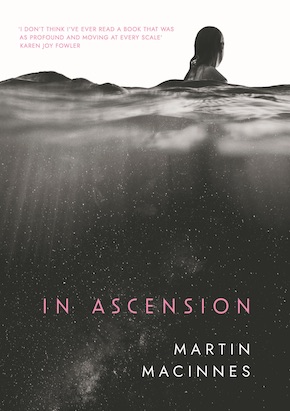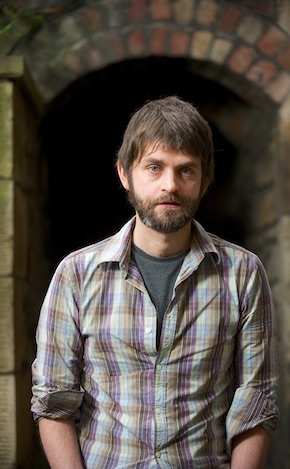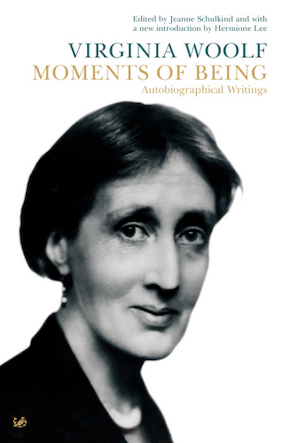Virginia Woolf and science fiction
by Martin MacInnes
They rode in the dark, arriving at Yorkshire in the pre-dawn. The Astronomer Royal had set up a camp directly on the line of totality. In Southport, on the beach, a quarter of a million people gathered. Woolf and her group left their train and walked uphill towards Richmond. Everybody waited. The sun came up, and then it disappeared. The first total eclipse visible in Britain in more than two hundred years. “We had fallen,” she wrote in her diary. “It was extinct. There was no colour. The earth was dead.”
Woolf was many different writers: a feminist; an experimentalist; a modernist; a pacifist. She was also – as I’m going to argue here – a science fiction writer. And not in some indirect or tangential way; it was central to her whole project. While it might not be a particularly widely-held view, it’s not entirely original either. Holly Henry’s Woolf and the Discourse of Science (Cambridge University Press, 2003) makes the claim implicitly. Kim Stanley Robinson wrote a short piece for the New Scientist on the topic. Still, it’s a minority view, and the case deserves to be made again.
Woolf was the first writer I really fell for. Reading To the Lighthouse in my teens changed everything. Our circumstances couldn’t have been more different – upbringing, education, social class – but I identified with her profoundly. I read everything – the novels, the short stories, the essays, the beginning of her unfinished autobiography (Sketch of the Past – one of the best things she ever produced, and still virtually unread), the letters and diaries. I began planning my undergraduate dissertation years in advance, and writing it was one of the happiest and most stimulating periods of my life. My identification with Woolf and the pleasure I took in her writing was so instinctive, and felt so right, that I’m not sure I ever stopped to ask myself what it was exactly that I enjoyed so much. This quality, this striking aspect in her work, is what I now believe qualifies her as a science fiction writer. It is her attempt, alternately, to write from a human and a non-human perspective; her unusual ability to both foreground and decentre her characters.
There are some obvious markers of science fiction in her work. She is relentlessly concerned with how people travel through time, and occasionally this manifests preternaturally, as in the centuries-long lifespan of the eponymous Orlando, or the speculations on the recoverability of past states that fill both Sketch of the Past and The Waves. As she writes in the former, of childhood:
These moments… can still be more real than the present moment… I can reach a state where I seem to be watching things happen as if I were there… Now if this is so, is it not possible – I often wonder – that things we have felt with great intensity have an existence independent of our minds; are in fact still in existence? And if so, will it not be possible, in time, that some device be invented by which we can tap them?
‘Time’ is her enduring theme. Mrs Dalloway – which covers a 24-hour period – was originally titled The Hours, and her penultimate novel is The Years. The six speakers of The Waves, recounting and reviving even the smallest details of their lives, are repeatedly interrupted by an inhuman oceanic scene, an image of eternity. And one of the most audacious moves in all her work is the transition from the long opening part of To the Lighthouse to the short sequence ‘Time Passes’. The holiday home around which the sprawling Ramsay family meet each year is abandoned and left to ruin, as time runs on furiously and indeterminately. The descriptions of progressive ruin, the infestation of rats, toads, the encroaching rot, is like a dystopian science fiction novel in miniature, the era of humans ending, Ballard’s The Drowned World in nineteen pages.
The shift from the close-up to the vastly distant appears again and again. This dual perspective gives her work a powerful tension and energy, the near and far each deriving its power in conflict with the other.”
What really marks Woolf as a science fiction writer is her determination to switch scale. She illustrates this through images of lenses and shining (and disappearing) lights, magnifying and diminishing the objects in their frame. This shift from the close-up to the vastly distant appears again and again, never more effectively than when Mrs Ramsay, the character we’ve spent the previous hundred and thirty-three pages floating alongside, is (spoiler alert) discarded inside two lines of parenthesis, a death all the more unbearable for its total absence of circumstance, a black hole appearing suddenly in a minor corner of a page. This dual perspective gives her work a powerful tension and energy, the near and far each deriving its power in conflict with the other. It is so shocking to see Mrs Ramsay discarded as a footnote precisely because we had known her so well.
It’s not by accident that Woolf became interested in destabilising and decentring her characters. Profoundly affected by the carnage of the First World War, her novels took an experimental turn at the same time as new and shocking revelations appeared regarding the size of the cosmos. In 1923, Edwin Hubble used the newly built Hooker telescope to record the spiral galaxy Andromeda, 100 million light years from the Milky Way. This signalled a wholly new understanding of the scale of the universe. Woolf found these discoveries challenging and ravishingly provocative. She read the astronomer James Jeans, who popularised Hubble’s findings in remarkable galactic photographs and grandiose, elegiac prose that hints at some of the depersonalising passages in To the Lighthouse and The Waves:
Indeed our Earth is so infinitesimal in comparison with the whole universe, we, the only thinking beings, so far as we know, in the whole of space, are to all appearances so accidental, so far removed from the main scheme of the universe that it is a priori all too probable that any meaning that the universe as a whole may have, would entirely transcend our terrestrial experience, and so be totally unintelligible.
The Mysterious Universe, 1930
As daunting as these discoveries may have been, they drove Woolf to greater feats of imagination, and to more remarkably sympathetic and voluminous renderings of human consciousness. As the universe was revealed to be far larger and stranger than anyone had anticipated, her characters became possessed of a kind of radiant fragility. The endless chasms around us made every moment of consciousness, of experience, of life, more miraculous, more enrapturing, more precarious. A kind of contradiction was at play: the smaller our lives appeared, relatively, the more they seemed to furl out, infinite in their own, private way. There is little doubt, reading Woolf, that one could travel across the whole of the universe and still fail to capture the full extent of a single human mind. And yet this could end at any moment. Centrally, again and again, she asks the following question: What are the moral and aesthetic imperatives that come from such an understanding? How are we to live, in such a place?
Four years before her death, having completed The Years, the last novel to be published in her lifetime, Woolf wrote a short letter to the science fiction writer Olaf Stapledon. She had just read Star Maker. In her typically humble way, she expressed her affinity with the galaxy- and eon-spanning journeys of his novels. They were both, she suggested, engaged in a similar pursuit:
I would have thanked you for your book before, but I have been very busy and have only just had time to read it. I don’t suppose that I have understood more than a small part – all the same I have understood enough to be greatly interested, and elated too, since sometimes it seems to me that you are grasping ideas that I have tried to express, much more fumblingly, in fiction. But you have gone much further and I can’t help envying you – as one does those who reach what one has aimed at.
Many thanks for giving me a copy,
yours sincerely,
Virginia Woolf
—

Martin MacInnes was born in Inverness in 1983 and lives in Edinburgh. He has an MA from the University of York, has read at international science and literature festivals, and is the winner of a Scottish Book Trust New Writers Award and the 2014 Manchester Fiction Prize. He is the author of Infinite Ground (2016), which won the Somerset Maugham Award and was shortlisted for the Saltire Awards, and Gathering Evidence (2020), which led to his inclusion in the National Centre for Writing/British Councils’s list of ten writers shaping the UK’s future. His third novel, In Ascension, is published in hardback and eBook by Atlantic Books.
Read more
martinmacinnes.wordpress.com
@AtlanticBooks
Author portrait © Rob McDougall


